lundi, 10 novembre 2014
Russia’s Classical Future
Russia’s Classical Future
Design chosen for St Petersburg’s new judicial quarter
Ex: http://www.andrewcusack.com
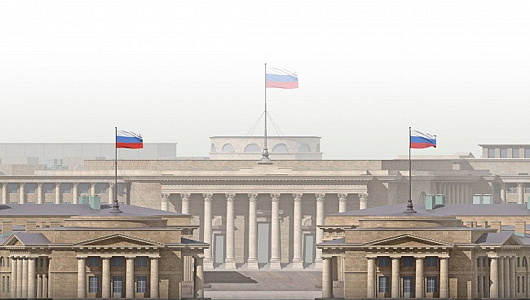
While a vast and multifacted state, the Soviet Union was nonetheless one in which power was highly centralised, not just within one city — Moscow — but even within one complex of buildings, the Kremlin. For the past fourteen years, however, a St Petersburg boy — Vladimir Putin — has been the man at the helm of the ship of state, and while Moscow is still the top dog St Petersburg is increasingly stealing the limelight. The number of commercial bodies (several subsidiaries of Gazprom, for example) moving from Moscow to St Petersburg is growing, and even a few government departments and other entities have moved back to the old imperial capital.
Among these is the Constitutional Court of the Russian Federation, which transferred to the old Senate and Synod buildings in St Petersburg in 2008. The Supreme Court and Higher Arbitration Courts have yet to make the move, however, and a scheme by architect Maxim Atayants has been chosen as the winner of the design competition for the new judicial quarter on the banks of the Neva.
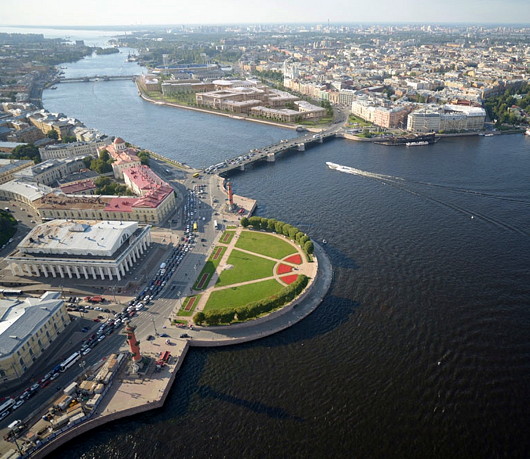
The quarter includes a new Supreme Court building, the Judicial Department of the Armed Forces, a dance theatre, and a medical centre. Atayants’s Supreme Court is in a formal neoclassical style while the dance theatre will be executed in a more freehand version of the style.
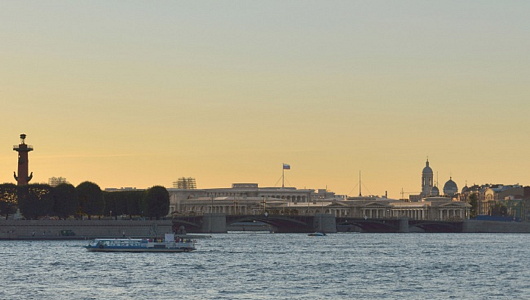
The competition entry (below, in sepia tones) has already been altered, though I think the original design is superior, especially with regard to the theatre. The planned façade was influenced by the classical backdrops of ancient Roman theatres, while the newer design is classical by way of art nouveau.
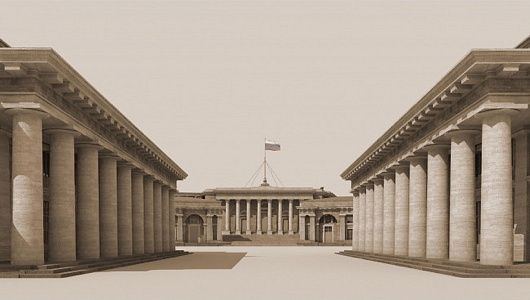
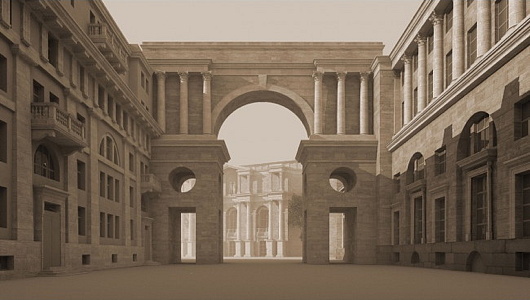
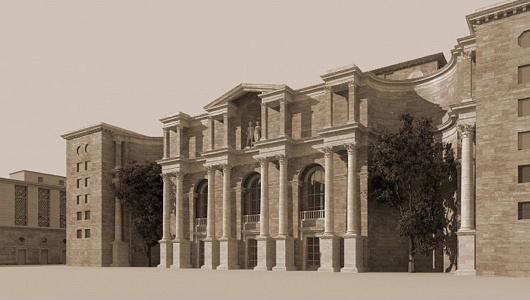
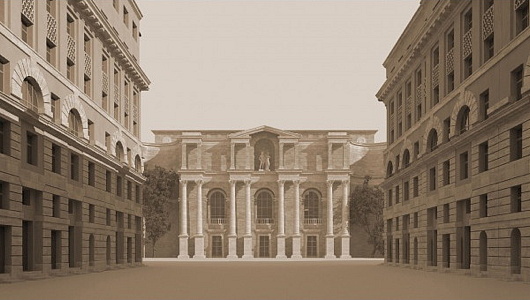
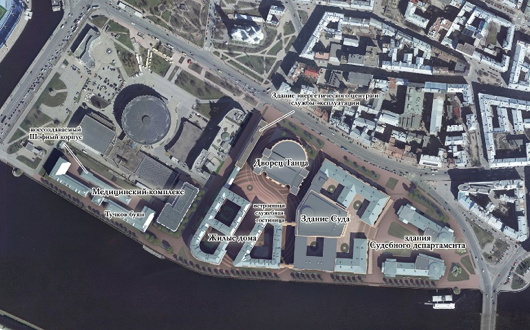
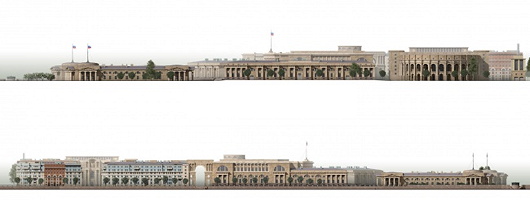
Above: the original scheme; below: some updates to the design.
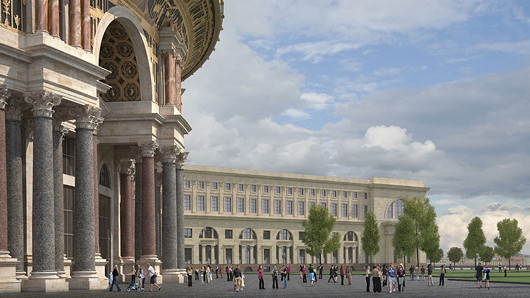
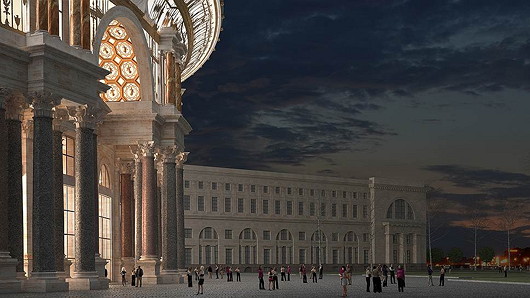
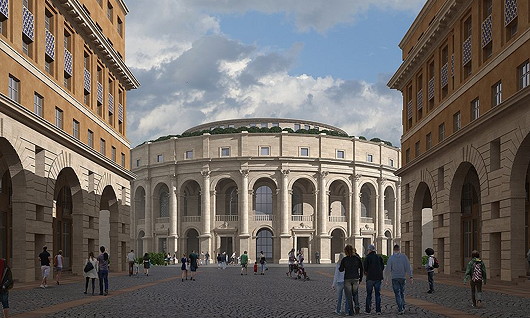
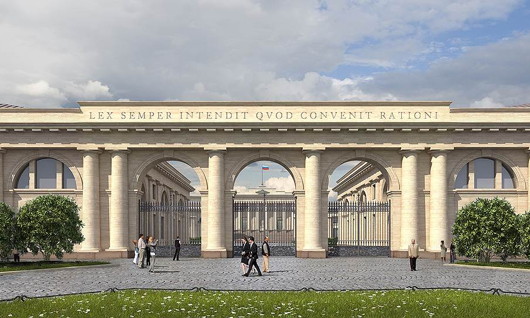
Lex semper intendit quod convenit rationi: ‘Law always intends what is agreeable to Reason’.
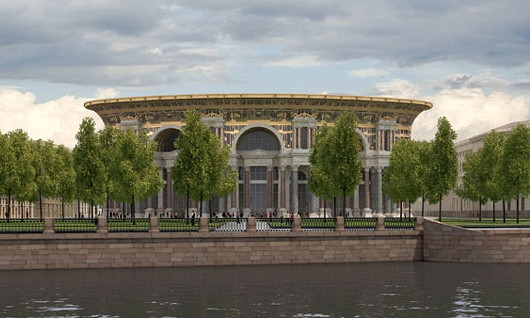
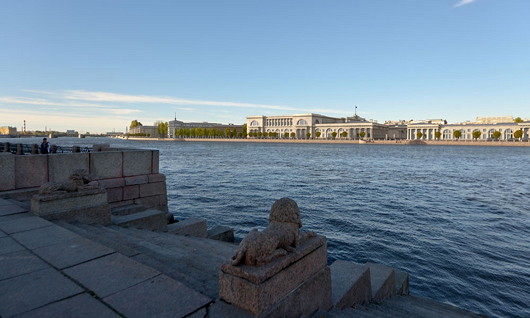
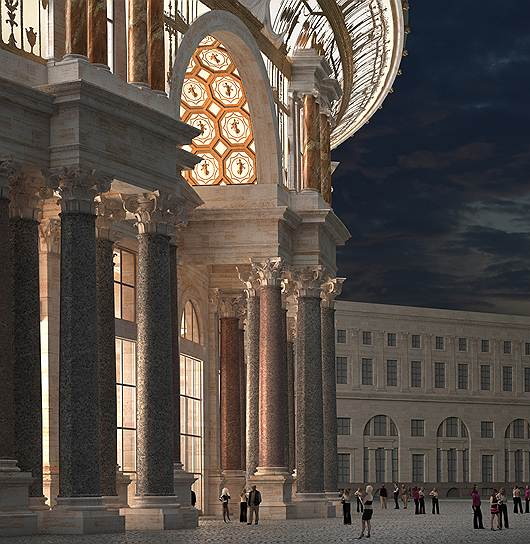
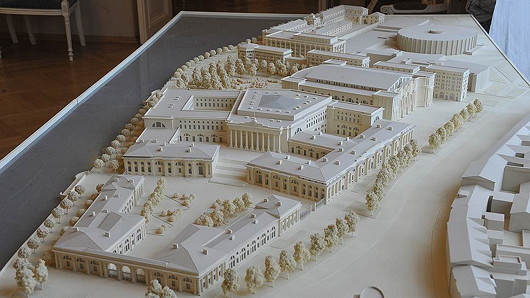
00:02 Publié dans Actualité, Affaires européennes, Architecture/Urbanisme, art | Lien permanent | Commentaires (0) | Tags : russie, art, architecture, urbanisme, saint petersbourg, architecture classique, classicisme |  |
|  del.icio.us |
del.icio.us |  |
|  Digg |
Digg | ![]() Facebook
Facebook


